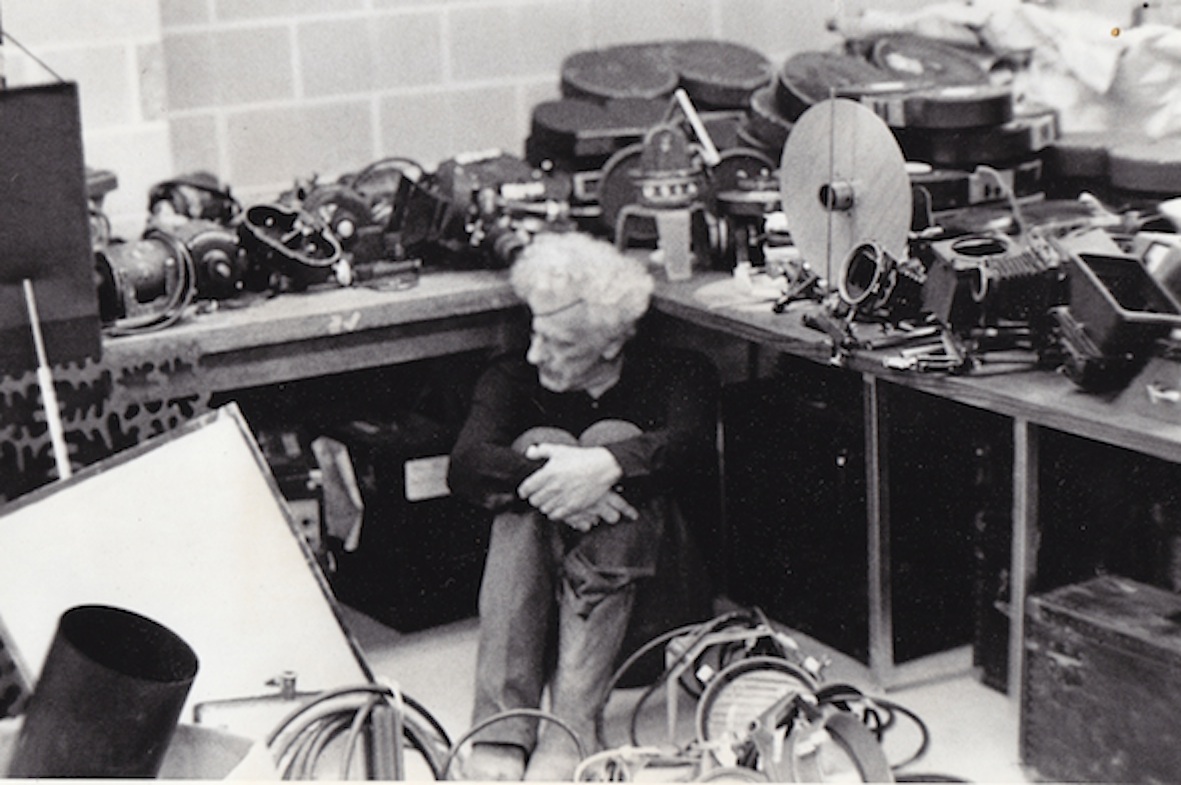EDITORIAL. PEDAGOGIES OF THE CREATIVE PROCESS
Gonzalo de Lucas

I
Susan Ray: ‘I believe Nick loved teaching, especially at this time. Teaching provided a laboratory in which he could research his craft and fellow humans. Teaching helped him to clarify his thinking and draw some conclusions. Teaching allowed him to guide and nurture young people as he himself had been guided and nurtured and had missed being guided and nurtured. Nick wholly gave himself to his students as mostly they gave themselves to him. I believe he felt a new peace at this time. This time had the tenderness of a seedling just before the first frost’ (RAY, 1995: 34).
II
An important activity among many filmmakers is teaching in film schools, universities and other educational contexts, often linked to the support of creative processes. However, with the exception of some books that have left evidence of the classes, for example, by Nicholas Ray, Jean-Luc Godard, Jerry Lewis, Sergei Eisenstein or Raúl Ruiz, these actions are much less documented than desirable.
This issue is organized as three connected parts. The first two collect some reflections on experiences and methodologies of the transmission of viewing and filming. From primary schools to universities, they all have in common the comparative approach to the forms of film through the viewings of excerpts projected in class, and the ability to generate aesthetic experiences among students –as spectators and filmmakers–, avoiding the risks of academicism and making the film a living and lived story.
In the two initial conversations, José Luis Guerin and Alain Bergala present, through some of their training practices, the way in which they articulate the viewing as a creation experience, and the constant dialogs between being a spectator-filmmaker and a filmmaker-spectator. The second part expands on the way in which this and other issues are discussed in Cinema en curs, a film pedagogy program in primary and secondary schools. The third and last part adds the study of the specific cases of two filmmakers, Mikhail Romm –and his teaching in the VGIK–, and Joaquín Jordá, who generated political affiliations or collaborative practices in different political contexts.
BIBLIOGRAPHY
RAY, Nicholas (1995), I was interrupted. Nicholas Ray on making movies. RAY, Susan (ed.). Berkeley and Los Angeles. University of California Press.
Nº 5 PEDAGOGIES OF THE CREATIVE PROCESS
Editorial. Pedagogies of the Creative Process
Gonzalo de Lucas
DOCUMENTOS
The Goodwill for a Meeting: That's cinema
Excerpts by Henri Langlois, Jean-Louis Commolli, Nicholas Ray
FILMS UNDER DISCUSSION. INTERVIEWS
Filmmaker-spectator, Spectator-filmmaker: José Luis Guerin's Thoughts on his Experience as a Teacher
Alain Bergala
Filmmaker-spectator, Spectator-filmmaker: José Luis Guerin's Thoughts on his Experience as a Teacher
Carolina Sourdis
ARTICLES
In Praise of Love. Cinema en Curs
Núria Aidelman, Laia Colell
A Daring Hypothesis
Jonás Trueba
To Shoot through Emotion, to Show Thought processes. The Montage of Film Fragments in the Creative Process
Gonzalo de Lucas
The Transmission of the Secret. Mikhail Romm in the VGIK
Carlos Muguiro
The Biopolitical Militancy of Joaquín Jordá
Carles Guerra
REVIEWS
AA,VV. BENAVENTE, Fran y SALVADÓ, Glòria (ed.), Poéticas del gesto en el cine europeo contemporáneo.
Marga Carnicé Mur

